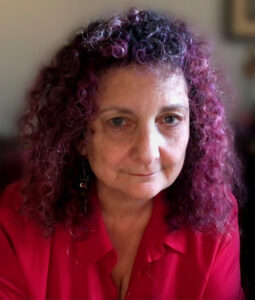Women in Horror: Interview with Ellen Datlow

 Ellen Datlow has been editing sf/f/h short fiction for four decades. She was fiction editor of OMNI Magazine and SCIFICTION and currently acquires short stories and novellas for Tor.com and Nightfire. She has edited numerous anthologies for adults, young adults, and children, including The Best Horror of the Year annual series, Echoes: The Saga Anthology of Ghost Stories, Final Cuts: New Tales of Hollywood Horror and Other Spectacles. Forthcoming are When Things Get Dark: Stories inspired by Shirley Jackson
Ellen Datlow has been editing sf/f/h short fiction for four decades. She was fiction editor of OMNI Magazine and SCIFICTION and currently acquires short stories and novellas for Tor.com and Nightfire. She has edited numerous anthologies for adults, young adults, and children, including The Best Horror of the Year annual series, Echoes: The Saga Anthology of Ghost Stories, Final Cuts: New Tales of Hollywood Horror and Other Spectacles. Forthcoming are When Things Get Dark: Stories inspired by Shirley Jackson
and the reprint anthology Body Shocks. Her next original anthology is Screams From the Dark: 19 Tales of Monsters and the Monstrous. She’s won multiple Locus, Hugo, Stoker, International Horror Guild, Shirley Jackson, and World Fantasy Awards plus the 2012 Il Posto Nero Black Spot Award for Excellence as Best Foreign Editor. Datlow was named recipient of the 2007 Karl Edward Wagner Award, given at the British Fantasy Convention for “outstanding contribution to the genre” and was honored with the Life Achievement Award given by the Horror Writers Association, in acknowledgment of superior achievement over an entire career and honored with the World Fantasy Life Achievement Award at the 2014 World Fantasy Convention.
She runs the Fantastic Fiction at KGB reading series in the east village, NYC, with Matthew Kressel.
She can be found on the website Datlow.com, and on twitter and facebook (google her).
What inspired you to start editing?
As a reader and then an English Literature major, I figured my options were working in a bookstore, working as a librarian, or getting into publishing. The last seemed the best option, although I knew very little of what that entailed when I started out.
What was it about the horror genre that drew you to it?
I’ve read horror (and everything else) since I was a kid. I’ve always been attracted to the weird, the bizarre, the inexplicable. I watched the original Twilight Zone, and also One Step Beyond, Thriller, Night Gallery, etc growing up. I also loved science fiction–watching Star Trek and reading science fiction. They were all just a part of my life, so it seemed natural I would work in those genres as an adult.
Do you make a conscious effort to include female characters and themes in the anthologies you edit and if so, what do you want to portray?
No, I don’t. I try to get a good mix of male and female contributors but never dictate what kinds of characters or sub-themes they should include in their stories. They’ll of course be aware of the theme of the anthology but other than that-they’re free to write whatever they want. I think it’s a mistake to believe that there are specific male or female “themes.”
What has editing horror taught you about the world and yourself?
That horror can be found in the most mundane of situations; that many writers of horror are not perceived as or labeled horror writers despite the fact that they’re writing horror; and that my taste has changed over time as much as any other reader’s does.
How have you seen the horror genre change over the years? And how do you think it will continue to evolve?
More women and more writers-male and female- from outside the western literary tradition have gotten into the field and are making names for themselves. This will continue to happen and I’m delighted by it.
How do you feel women have been represented thus far in the genre and what hopes do you have for representation in the genre going forward?
I get tired of woman as victim or woman as monster. I’d like to see female characters portrayed with more agency. Happily this has been changing over the years.
Who are some women who write horror you recommend our audience check out?
In short fiction– which is what I know best: Gemma Files, Priya Sharma, Elizabeth Hand, Carole Johnstone, Alison Littlewood, Kaaron Warren, Livia Llewellyn, Thana Niveau, Siobhan Carroll, Joyce Carol Oates, Caitlín R. Kiernan, A. C. Wise, Margo Lanagan, Cassandra Khaw, Alyssa Wong, Kristi DeMeester-and tons more.
What is one piece of advice you would give horror authors today?
I’m going to cheat slightly by dividing my answer into two parts. Part 1: Be aware of those who came before you. Horror literature has a long, rich history-it never hurts to have read writers pre-King/Straub/Rice. Part 2: having read historically, you’ll see that every trope has been done before. This does not matter. It’s your voice that makes a story fresh and memorable.
And to the women who write horror who are just getting started, what advice would you give them?
Ignore trolls and just write your heart out. Make sure that if you join a writers’ group, you’re in one that lift its members up rather than knocks them down, and when getting critiques of your work, always remember it’s your story—take suggestions that make sense to you and that you decide might make your story better. Ignore those that don’t.
Also cannibalize cannibalize cannibalize. If a story doesn’t work, don’t hesitate to take parts of it that do work and use those parts for something else.



